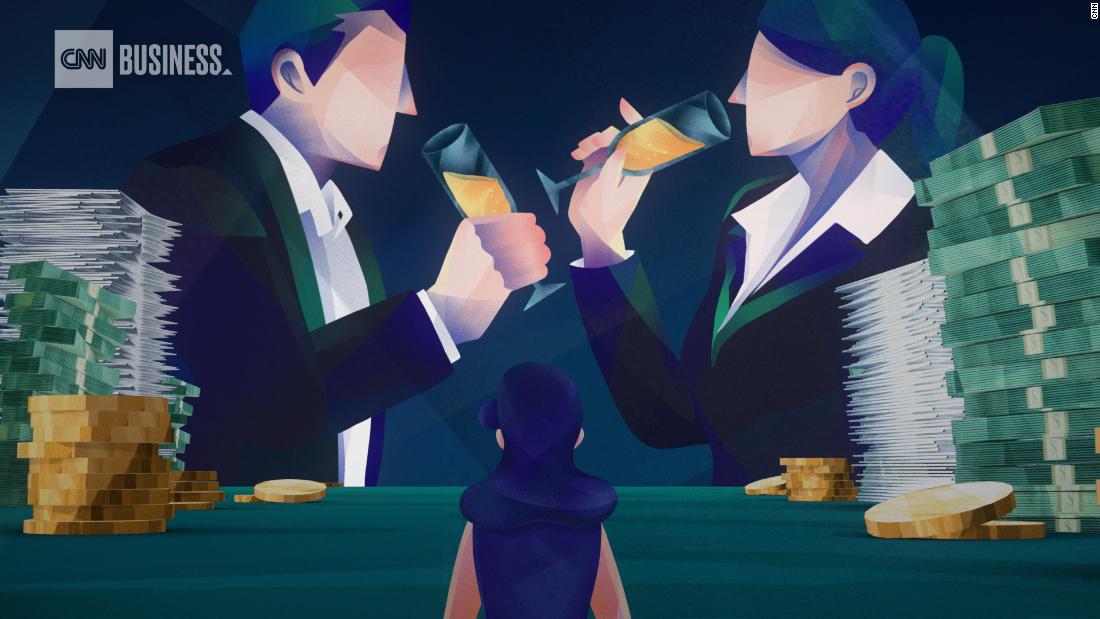
“I was doing great,” Schultz-Tarnopol said.
With no severance and no job prospects, Schultz-Tarnopol felt paralyzed. “I could not get myself to do anything. I couldn’t focus, couldn’t get myself to move forward, couldn’t get myself to find a good job.”
Over the next decade, she lost her car and house, went on food stamps, signed up for Medicaid, and filed for bankruptcy twice.
Since then Schultz-Tarnopol has managed to rebuild her life, bit by bit, and while her quality of life isn’t back to where it was before the 2008 recession, she says it’s close. As another financial crisis hits the United States, she says she feels a lot more prepared.
What Schultz-Tarnopol went through is not unusual, according to Natalie Colley, an associate advisor at Francis Financial. “You’re going to lose your primary source of income at some point in your career.”
Colley, who works predominantly with single women going through a financial transition, says your money history plays a big role in how you deal with financial change.
Here are some lessons Schultz-Tarnopol learned after the Great Recession that could help you survive a financial crisis:
It’s OK to ask for help
About a year after she was laid off, Schultz-Tarnopol’s sister dragged her “kicking and screaming” to put in her application for Medicaid and food stamps. It made all the difference.
“A lot of people have biases about social programs,” Schultz-Tarnopol said. “That’s nonsense. It’s for times like these. It’s for people who need it. And at some point, you won’t need it anymore.”
Medicaid, in particular, saved Schultz-Tarnopol’s family twice, when in 2011 her son had to have heart surgery. And then in 2013, Schultz-Tarnopol herself was diagnosed with breast cancer. The medical costs ended up being covered 100%.
While it’s important to use the government services available to you, Colley says financial help doesn’t just have to come from the government.
“Call the people to whom you owe money,” Colley recommends. “Call your credit card providers. Call your landlord. Call your student loan providers. And what you’ll find is that the companies are more often than not willing to work with you, particularly if you’ve been a good client in the past.”
Be prepared to take a financial hit when you are hired again
Four and a half years after being laid off, Schultz-Tarnopol was hired as a paralegal. She started earning $21 an hour, and she was cut off from all the government aid.
“The minute you start making money, they’re like, ‘No more food for you no more insurance for you.’ And you’re like ‘I still can’t afford it.'”
Still digging herself out of debt, she had to make some hard choices:
“Sometimes I couldn’t pay my electric bill. I just had to ask myself ‘What was the most important thing of that moment?’
The key is to plan ahead as much as possible, Colley says.
“Move in with a relative temporarily to reduce your overhead costs. Put money aside to help to increase the amount of money you have available for those few months while your salary is ultimately less than what you were receiving on benefits.”
Although the tough transition can make pursuing a new job seem futile, Colley says it’s worth it.
“You can either stay in this situation where you’re receiving the benefits — that’s just the way you’re going live for the rest of your life. Or you can transition off [and] find a career where your earning potential is far greater than those benefits. Ultimately, that is going be more fulfilling and set you up for success long term.”
Downsize your life to fit your wallet
Schultz-Tarnopol filed for bankruptcy twice, once in 2008 and once in 2018 after sinking into credit card debt. The second time she decided she was done with stacking her bills up on credit cards.
“People just use credit like they can afford it. And what I learned is that if I cannot pay for it with cash, I do not deserve to own it.”
Since then she’s downsized almost everything: She rents an inexpensive apartment. She cooks more, even though she doesn’t like to. And when she goes shopping she makes sure to make a list to avoid filling her cart up with unnecessary clothes or groceries.
Colley says there are real advantages to using a credit card — if you can pay it off each month.
“[Good credit] allows you to get a better rate on loans extended to you, like getting a mortgage. It can also come into play when you’re looking to rent a new apartment… even apply for a new cell phone plan.”
The key, according to Colley, is to know yourself and your spending habits.
“When you’re talking about good credit, we’re talking about getting additional access to more debt. And if that’s something you can’t handle to begin with, then, you know, for some people, the best option really is to just simply say, you know what, a credit card is not for me.”
A good rule to follow is save first, then spend. Colley recommends having at least six months of living expenses in a savings account at all times. You should aim to save 20% of your gross income, she says, “so that if you are in a situation where you lose your job, you’re not losing 100% of your salary.”
Let the fear inspire you
When Schultz-Tarnopol started seeing the stock market dip in late February, she knew she was going to take a hit. She was laid off … again. But unlike in 2008, she had another job to fall back on.
“I guess I always have this fear that if I lose one job, at least I have the other. Which is exactly what happened.”
The decision to get a second job in 2018 was a way of boosting her income as her kids started college, but also as protection from the fear she had of putting too much power into the hands of one employer.
“It just made me feel lighter, knowing that I had a plan B. That I wasn’t counting on one boss to stand up and do the right thing. At least if I have two different bosses, I have a much better chance of everything being OK.”
Colley calls this “job diversification.”
“How can you earn money on the side? Learning how to bring in income on your own can really help you if you were to lose your primary source of income.”
About three and a half months after Schultz-Tarnopol lost her part-time job, she was re-hired. While the past few months have stretched her financially, she was barely rattled by the experience, especially when she compares it to what happened in 2008.
She attributes her newfound emotional strength to making sure she eats well, meditates, sleeps, and exercises. And her sense of self-awareness.
Before 2008, “I didn’t know anything about what’s going on in my world. I didn’t get involved. I barely voted, but I expected everything to be happy and peaceful.”
“This time around my eyes are wide open.”

Malvagio fanatico dei social media. Pensatore hardcore. Pop cultureaholic. Organizzatore. Esperto di alcolici. Appassionato di cibo. Sostenitore di Twitter per tutta la vita






